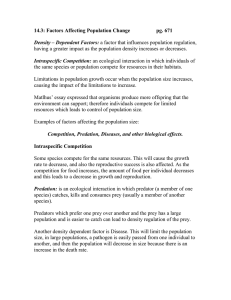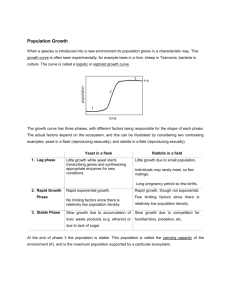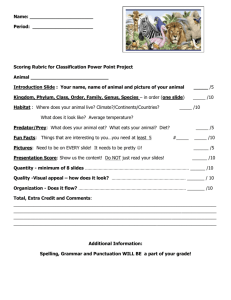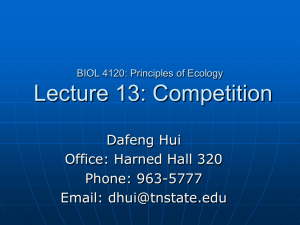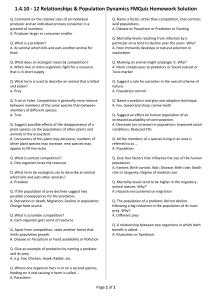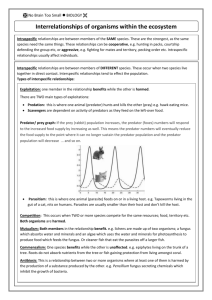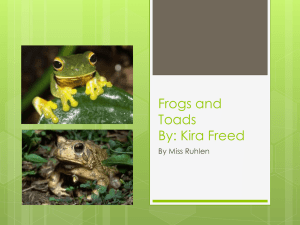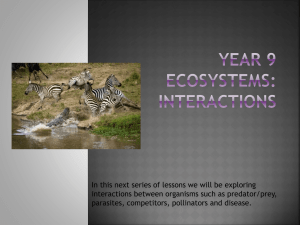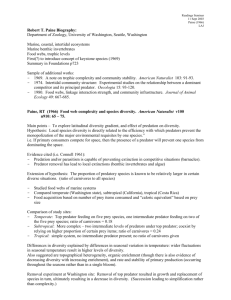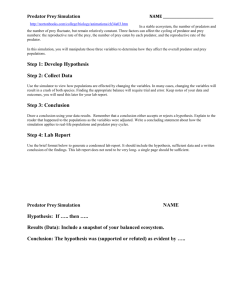Competition Relationships
advertisement
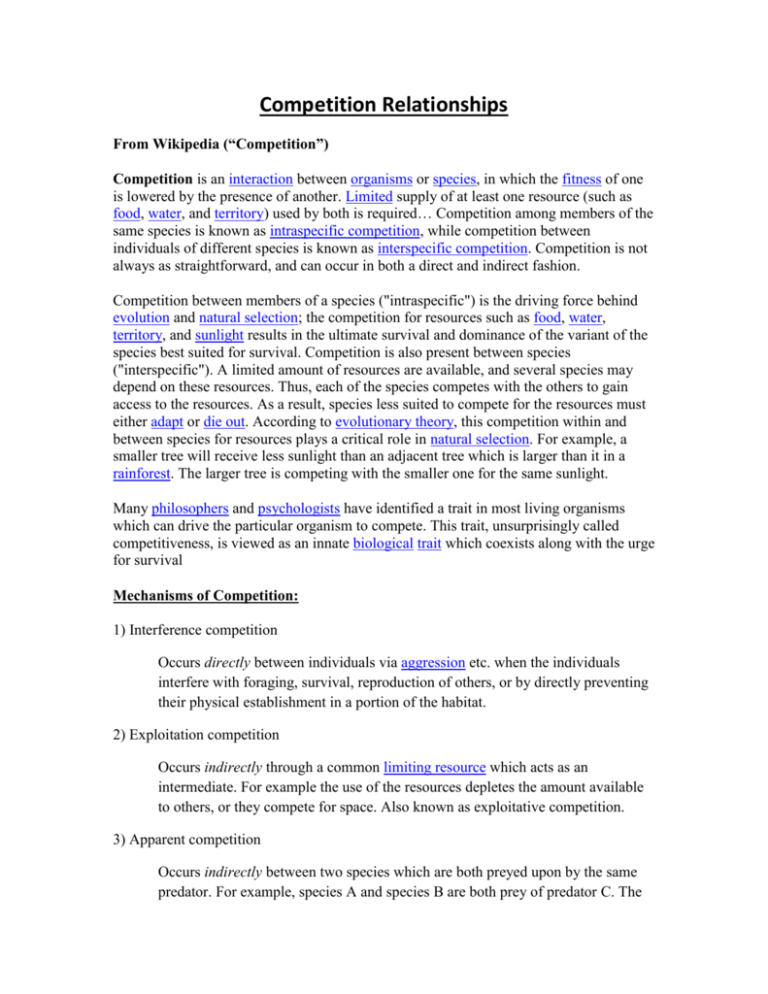
Competition Relationships From Wikipedia (“Competition”) Competition is an interaction between organisms or species, in which the fitness of one is lowered by the presence of another. Limited supply of at least one resource (such as food, water, and territory) used by both is required… Competition among members of the same species is known as intraspecific competition, while competition between individuals of different species is known as interspecific competition. Competition is not always as straightforward, and can occur in both a direct and indirect fashion. Competition between members of a species ("intraspecific") is the driving force behind evolution and natural selection; the competition for resources such as food, water, territory, and sunlight results in the ultimate survival and dominance of the variant of the species best suited for survival. Competition is also present between species ("interspecific"). A limited amount of resources are available, and several species may depend on these resources. Thus, each of the species competes with the others to gain access to the resources. As a result, species less suited to compete for the resources must either adapt or die out. According to evolutionary theory, this competition within and between species for resources plays a critical role in natural selection. For example, a smaller tree will receive less sunlight than an adjacent tree which is larger than it in a rainforest. The larger tree is competing with the smaller one for the same sunlight. Many philosophers and psychologists have identified a trait in most living organisms which can drive the particular organism to compete. This trait, unsurprisingly called competitiveness, is viewed as an innate biological trait which coexists along with the urge for survival Mechanisms of Competition: 1) Interference competition Occurs directly between individuals via aggression etc. when the individuals interfere with foraging, survival, reproduction of others, or by directly preventing their physical establishment in a portion of the habitat. 2) Exploitation competition Occurs indirectly through a common limiting resource which acts as an intermediate. For example the use of the resources depletes the amount available to others, or they compete for space. Also known as exploitative competition. 3) Apparent competition Occurs indirectly between two species which are both preyed upon by the same predator. For example, species A and species B are both prey of predator C. The increase of species A will cause the decrease of species B because the increase of As would increase the number of predator Cs which in turn will hunt more of species B. Resource Competition between fish species in the Ozarks: Arrows show competition between each type of fish. Those at the top of the chart are out-competing those below them. The White Sucker only competes with the Northern Hogsucker, while the Northern Hogsucker, Golden Redhorse, and Black Redhorse all compete with each other. Notice that the fish on the left, especially the Golden Redhorse, competes well in warm water. The white sucker, on the contrary, competes well in colder water. http://www.combat-fishing.com/SuckerResourceCompetitionOzStrm.JPG Direct vs. Indirect Competition: Figure 1. Two schematic diagrams of competition between top predators (shown here as a groundfish and a whale) and two prey types (shown here as forage fish and krill). In (a), each predator chooses separately from a range of prey, in which case the predator competition is relatively indirect. In (b), each prey type forms local “hotspots” of abundance, in which predators must compete directly for food. Comprehension Questions: 1) What do organisms compete for? 2) What are some examples of indirect competition? Direct competition? 3) How does intraspecific competition relate to natural selection? 4) Describe three examples of interspecific competition. All examples must show competition for a different resource. (Food, territory, water, sunlight, nutrients, etc.) Hint: Don’t forget about plants!!!
